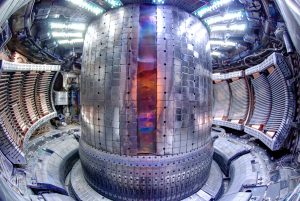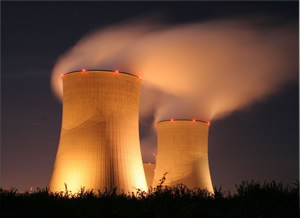7 item(s) were returned.
Communications Director
ClearPath
To tackle a topic as monumental and divisive as climate change, it will take a politically realistic and technologically inclusive agenda built on advancing clean power around the world. Last Congress, we saw bipartisan support on issues such as a key tax incentive for carbon capture, and a similar fix for advanced nuclear. Legislators found common ground as they focused on both climate benefits and economics. The reality is that any impractical and hasty move toward an all-renewable power strategy in the U.S. will not only be too partisan, but it will also fail to affect the global emissions… [more]
View InsightU.S. Senator, State of Delaware
Member, Senate Appropriations
Recently, a bipartisan, bicameral bill, the IMPACT for Energy Act, was introduced to establish a nonprofit foundation that will channel private-sector investments that support the creation, development, and commercialization of innovative technologies that address ongoing energy challenges. Today’s energy challenges are complex. Viable energy solutions involve multiple partners in government, industry, and academia. The pace and scale of these projects require partnerships between public and private entities to negotiate all stages of the innovation pipeline. While Research, Development, Deployment, & Diffusion (RDD&D) has long relied on public-private partnerships, the U.S. has experienced investment changes. RDD&D is essential for driving innovation and… [more]
View InsightThe Department of Energy’s (DOE) Advanced Research Projects Agency for Energy (ARPA-E) is responsible for funding transformational energy technologies that are too early in their development to attract private-sector investment. Projects funded by ARPA-E are typically considered high-risk investments due to the long and arduous incubation period for energy technologies. However, in 2015, the 2% of total project applications that ARPA-E funded raised questions about the agency’s tolerance for risk. Because the program has been under pressure to achieve results quickly, some have suggested that it has been more inclined to invest in projects that have a higher chance of… [more]
View InsightNASA has used thermoelectric energy, or the conversion of waste heat to electricity, for decades to power spacecraft and the Mars Science Laboratory Rover. However, thermoelectric energy has attracted minimal attention in the alternative-energy world due to its limited commercial viability, until recently. Last year, Michigan State University (MSU) with the support of the Lawrence Berkley National Lab developed a new class of thermoelectrics using a compound called tetrahedrite that is believed to be more cost-effective and has the potential for everyday use. One start-up finding success building on the findings from MSU is Alphabet Energy. They have developed a stand-alone… [more]
View InsightProfessor of Physics
City College of the City University of New York
The low cost and abundance of natural gas is rapidly causing utility companies to replace coal plants and aging nuclear power plants with gas-fired power plants. The widespread transition to natural gas highlights a need for the nuclear industry to focus on innovation as a means of regaining its competitiveness. Yet innovation requires long-term investment, and the nuclear sector faces structural difficulties in procuring the necessary funds to develop promising technologies. Republicans, who now control both houses of Congress, draw a strong distinction between basic research, which they generally accept as a federal responsibility, and applied research, which they believe… [more]
View InsightPrincipal
Perelman Group
Jesse Jenkins (MIT) and Matthew Stepp (Center for Clean Energy Innovation) are among a number of policy analysts who have called for a “tax and invest” strategy to combat global warming. That is: A modest tax on carbon emissions would be invested in government research, development, and innovation-promotion programs to commercialize new alternative energy technology. But in a recent article I have argued there are at least four reasons to question whether typical government technology programs would be as cost-effective an investment as Jenkins and others claim: 1. The government role in innovation is neither necessary nor sufficient. Of the… [more]
View InsightSenior Policy Analyst
Information Technology and Innovation Foundation
Don’t be fooled by the lack of “climate” in the policy title — the America COMPETES Act is just as important to addressing climate change as it is to its originally stated goal of strengthening U.S. international competitiveness. The legislation — which was passed in 2007, first reauthorized in 2010, and is up for reauthorization again this year — directly supports science and technology institutions that underpin the United States innovation infrastructure, including the development of clean energy. The COMPETES Acts has supported clean energy innovation through creation of the DOE’s ARPA-E and proposed a long list of educational reforms.… [more]
View Insight





